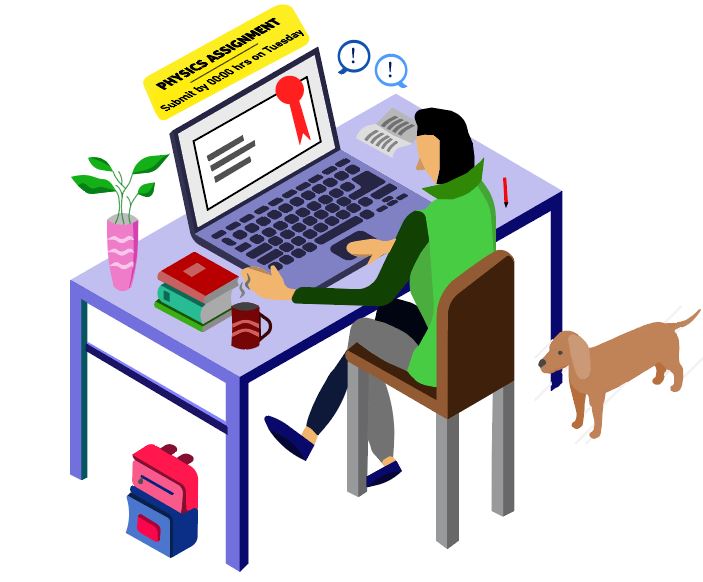Microphones on mute, videos switched off and their attention in the skies–this is how most children, including 14-year-old Lalith Gautam, sit in online classrooms.
Lalith studies in 8th standard in Peepal Prodigy School in Coimbatore. He wakes up every day at 7 am to attend classes till 3 PM. These classes are usually just his teachers talking to a blank screen.
In a place surrounded by his favourite toys and the smell of his lunch from the kitchen, focusing on a math class is tough. Especially, when he would prefer to eat or play. His puppy is very demanding too and he attempts to cuddle it without appearing in the camera’s line of sight. But this is only when his video is on, of course.
His mother watches him from the kitchen, ensuring he was paying attention to the classes and not drifting off. When he does get distracted, there’s a warning to focus.
But wait, he has a doubt now. Should he ask? Or should he just wait for his turn?
By the time he gathers the courage to unmute himself to ask, the teacher has moved on and he’s left with an unanswered question that none of his classmates felt like asking.
“There are many children who don’t want to unmute,” said Ramya K, a psychology teacher at BVM Global School, Coimbatore. “We are not aware of what is happening on that side of the screen,” she added.
Lalith listens to his teachers and completes his assignments the night it is due, just like all his classmates. He’s doing projects all on his own if not with his parents but without his friends surrounding him like they used to in a normal classroom.
Lalith just can’t discuss his work with his classmates like before anymore. Not without having to pick up a phone, getting through a parent on the other line, or worse, getting into another online meeting that would again be monitored by parents. Like every other child, he’s losing communication with peers in the formative stages of his life.
This past year, he hasn’t had fun with his friends or run around the school corridors during recess. The most he has talked to his friends is through WhatsApp or through the texts they send to each other in class while the cameras are off.
“They lose the very idea of school, meeting new people and mingling with them. When you mingle with a group of ten people, you get ten different experiences,” said Dr PS Chandrasekhar, consultant Paediatrician & Neonatologist at Kovai Medical Centre and Hospital, Coimbatore.
E-‘learning’?
Since everything is online, his exams are too. With open book tests and quick googling, Lalith has everything at his fingertips.
“If I want to study something, I can Google it. If Google is teaching the same thing that a teacher says, then I don’t know what is the difference between the two,” said Ramya, when asked about how children dealt with online tests and assignments. Because of this, in the primary classes, an entire class could make the same mistake, she said.
Online exams tested analytical ability while offline ones only tested memory, said Dr Priti Arun, professor and head of department of Psychiatry at the Government Medical College and Hospital, Chandigarh. In some ways, such assignments where the child would have to come up with their own ideas is a welcome form of learning.
However, many children come from households where school is an escape. Teachers said they often found parents rebuking or abusing children on camera, sometimes even physically. Staying at home and online education could have helped with some family bonding. But in a vastly socioeconomically disadvantaged country like India, the school environment might be more enriching than the home—nutritionally, emotionally, and developmentally, said a recent research paper, COVID-19 and adolescent mental health, that appeared in the medical journal, The Lancet.
But the problem isn’t just about mental health. Education is still a primary need in countries like India.
“Online education is not by choice. The option was not to have any education,” said Arun.“This is the best option available.”

